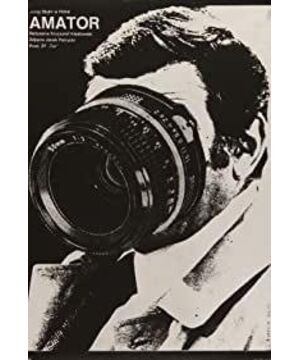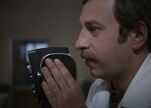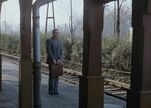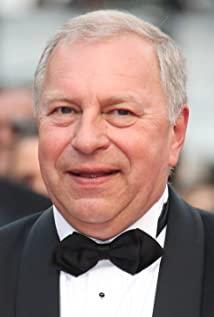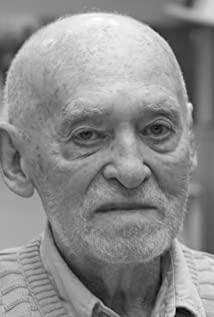This is Kieslowski's second feature film, and the typical "moral anxiety" of Kieslowski can be seen in his early feature films. Seeing "Endless" from "Tram" (refilled according to the time of the work, I only see Endless when I write this), I also slowly feel his change from documentary short film director to becoming a master of film course. The reason why Kieslowski is called a master is not only because of the use of close-ups and camera movements, but also because he is good at telling tragic core stories that focus on small people. He usually places the characters in a difficult situation, creates the tragedy at the end through the contradictions between the characters and others and the society, and reflects on human nature and morality with "anxiety". All of his five early feature films were in this form.
In this "Movie Fan", this setting is even more interesting. The protagonist of the movie is not only a small character Philip Moss, but also a reflection of the director himself, and a reflection of thousands of fans in front of the screen. So the whole movie is more like the director's spiritual analysis and spiritual autobiography.
As a film director, what to shoot, how to shoot, whether to follow the leadership, cooperate with the association, or follow the heart, is a dilemma; as a father, a husband, how weight should be given to the film and the family is a dilemma; as a staff member The dilemma between the perseverance to make a movie and the dismissed colleague is a dilemma; as a movie fan, the original intention of a family of three was developed into a professional director. How should he examine himself? Dilemma. For every difficult situation, Kieslowski did not give a perfect ending. Abandoned the competition, his wife was separated, colleagues were fired, looking back at the original intention. So this is also a characteristic of masters dealing with movie themes, they only ask questions deeply, and never try to solve them.
He got full satisfaction when making movies, and his talent also brought him fame and the favor of others. Even the figure of his neighbor's mother he kept on the film brought infinite warmth and beauty to the truck driver. These are what his hobbies can give him, but they have gradually swallowed him. Strickland in "The Moon and Sixpence" is similar to Philip in the movie, giving up stability for the sake of his spiritual world. In fact, the sum of the attitudes Philip presented in the predicament is a spiritual utopia, an extremely idealized state of development. Its collision with real life sparks a spark, but ignites himself.
From observing and recording his married life, to showing the factory and social life, to examining himself, it is the process of Philip's return to rationality from rationality to sensibility. The film stops abruptly when Philip uses the lens to focus on himself. We don't know what the protagonist will become. What we see is the helplessness of ordinary people in the difficult life. In the narrative of Keishi's close-up, we have a strong sense of substitution in the protagonist. What we love, even a passionate thought, will cause ripples and even waves in our own lake of life. We also gradually returned to rationality from frivolousness, began to examine ourselves, and cleaned up the mess that was born out of contradictions in our lives. What is commendable for this film is that the director not only focuses on the contradiction between ideal and reality, but also returns to his personal emotional experience more rationally.
Throwing away the resonance that the subject itself brings to us, Kijeslovsky's documentary shots (a lot of close-ups and follow-ups), who was born in a documentary short film, also brought a penetrating reality to his films. feel.
View more about Camera Buff reviews


